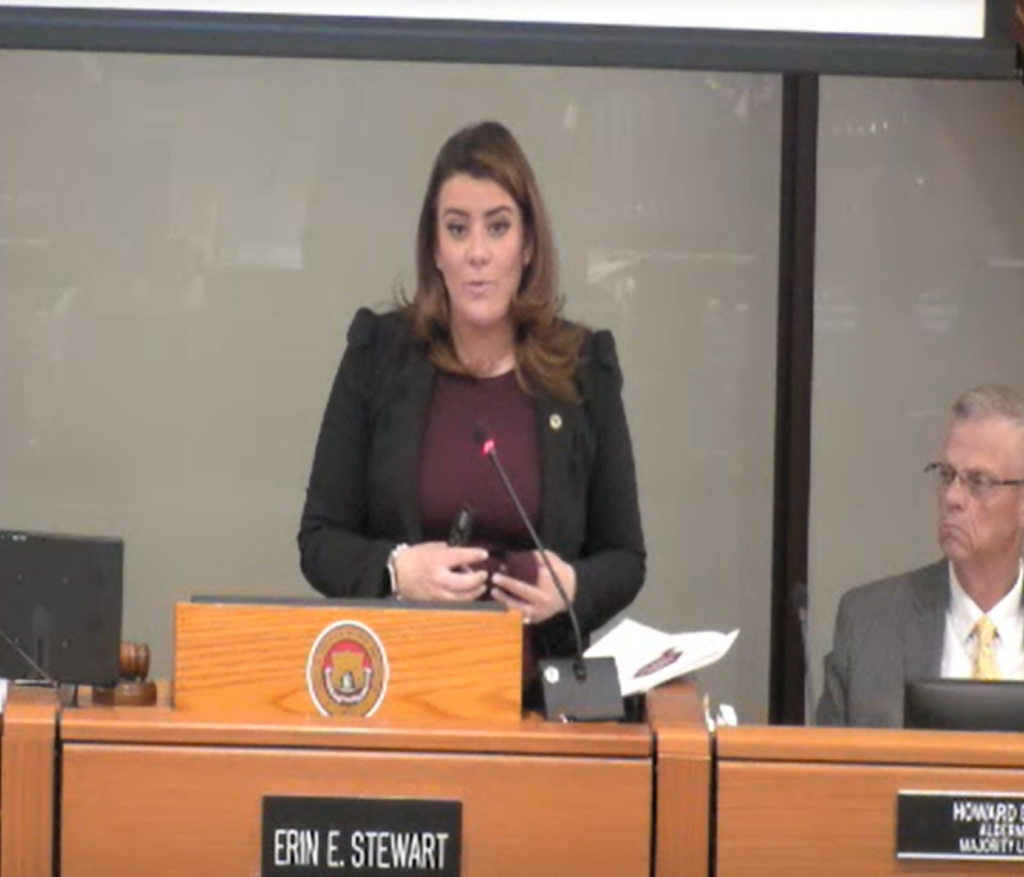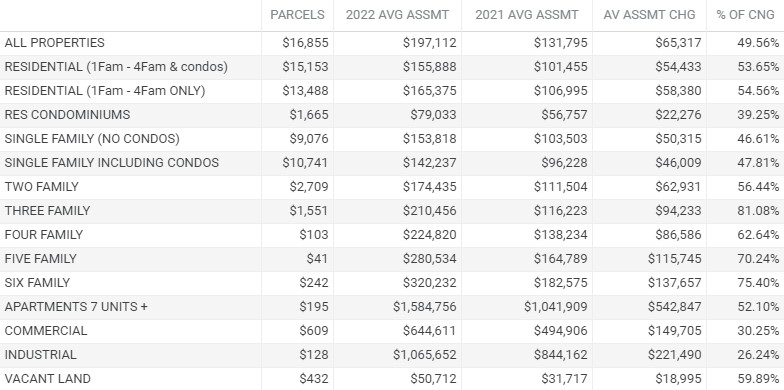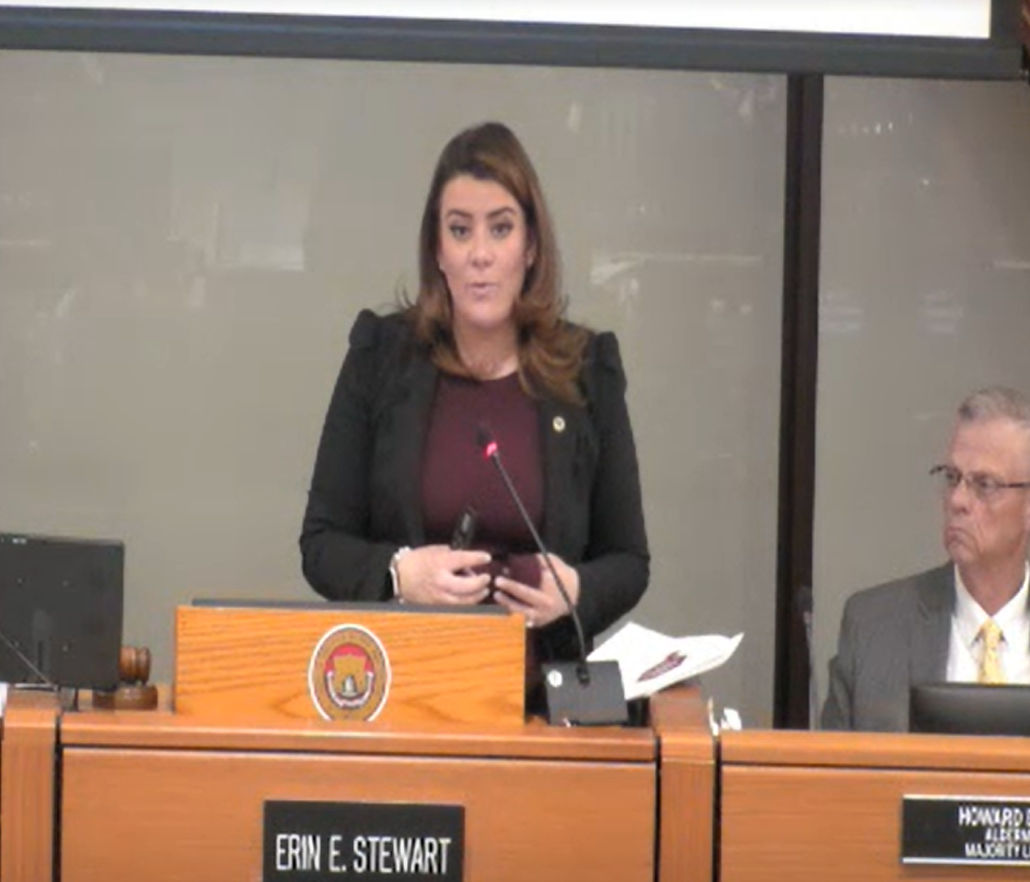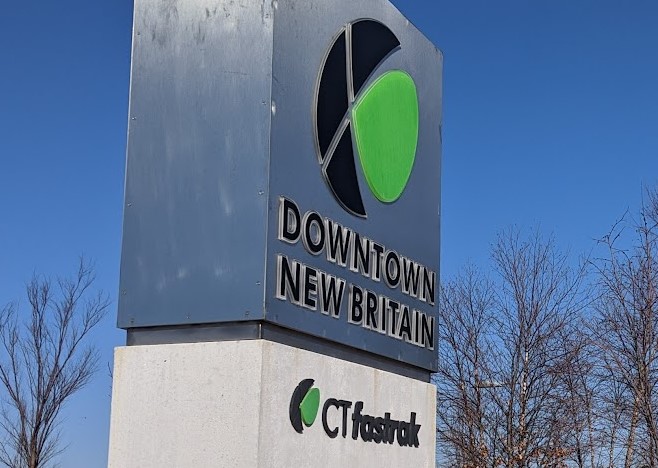Public Hearing Is April 24th; Common Council Adoption Due By June 7th
Staff Reports
NEW BRITAIN – Mayor Erin Stewart’s proposed $265,849,055 city budget would increase property taxes by 12.58% for the fiscal year that begins July 1st, with a 5.92% spending increase over current year expenditures.

The Mayor’s General Fund Budget Book 2023-2024
Stewart’s proposed budget would increase the city tax levy from $127,193,220 in the current year’s budget to $143,199,174 in the new budget. That would be an increase of $16,005,954, an increase in city “current year” taxes of 12.58%. Stewart’s proposed increase means that a substantial portion of taxpayers’ property tax assessments in the recently completed reassessment will result in tax increases for city residents and businesses.
City Hall Watch
This year’s budget comes after revaluation, which shifted more of a burden onto homeowners and small property owners. As expected, an 11.22 cut to the mill rate from 49.50 to 38.28 was made because of soaring assessments. But, while Stewart has touted this as a “savings”, the 22.67% lower mill rate is not enough to avert higher tax bills, with assessments averaging 46.61% higher for single family homes, 56.44% higher for two family houses and a whopping 81.08% higher for three family houses.

In her budget address on April 13th the Mayor said most of the $14.9 million in new spending is “due to factors beyond our control.” Cited were obligatory increases for police and fire pensions, municipal employee retirements (MERF) and debt service.
But critics of Stewart’s budget practices have warned that it would push up the debt service city taxpayers would be required later to pay. Democratic Council leader Ald. Aram Ayalon (D-3) recently said that the Stewart administration’s claims of surpluses and holding mill rates down over several terms stems from frequent borrowing to pay operating expenses. “The truth is that the mayor relies on an irresponsible practice of continuous borrowing and kicking the can to later,” stated Ayalon. “Since 2016 she has restructured city bonds every two years increasing the overall city debt to over $450 million, which requires larger and larger payments. Currently, the largest item of the city budget (not including the Board of Education budget) is debt payment and only 37% of it pays for principal.”
Stewart’s budget proposes a $2.5 million increase in debt service by the city. Most of the debt service under Stewart’s plan would be interest payments, in the amount of $13,990,028, with $9,005,000 toward debt principal. Stewart’s proposal would increase interest payments by $1,471,230 over the current year budget, while she proposes spending less on principal payments than were made already in the current budget year.
The Mayor’s office claims Stewart’s budget adds $5,054,012 as the local share for public schools, half the amount requested by the Board of Education. But the majority — $3.2 million of that claimed $5 million — appears to actually be under a vaguely defined “non-operating” budget line, rather than in the city budget appropriation that supports school operating expenses.
Incorporated within Stewart’s claimed support for education is, however, a $1.8 million proposed increase for the actual schools operating appropriation. The increase is an unusual departure for the Republican mayor, who has been widely criticized for low funding for the city’s schools over the years, often not increasing city funding for the schools’ operating budget at all. Over the ten years of Stewart’s city budgeting, the average amount of the city operating funding increase for schools has been about $760,000 per year — just 0.62% per year.
The Mayor’s proposal also estimates level funding from the state Legislature for Educational Cost Sharing (ECS) but lawmakers are seeking additional funding for New Britain and other cities in final appropriations in the state budget that will also be adopted in June.
The small increases for schools has not kept pace with inflation over Stewart’s ten years of budgeting. Taking inflation into consideration, Stewart’s $127,500,000 proposal for city school operating funding, in 2023 dollars amounts to only $98,809,590 in 2014 dollars, a $24,390,410 cut from the funding level in 2014. This makes the real amount of school operating funding from the city 19.80% less than when Stewart took office.
The City Council will hold a hearing on Stewart’s budget on April 24th at 6:30pm in City Hall and will then hold a meeting with the Board of Education on the budget on April 27th at 6:00pm.
New Britain Progressive, a publication of New Britain Independent Newspaper, Inc. is free to read and community supported. http://newbritainprogressive.com




